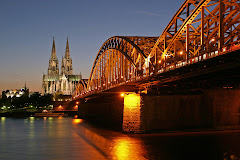OutlineLanguage and Teaching
Industrialization
2. What’s industrialization?
3. Changes
4. Impact and Connection with Language and Teaching
5. Why is it important?
Language and Teaching
Industrialization

How can we relate language teaching with industrialization? Was it the beginnig of now? Industrialization was a period of time at the end of the XVIII and the early XIX century. This period had lot of changes but mainly based on social and economic changes which were closely related with technological innovation. Industrialization was also a very important period for philosophers, literature and education.
Agriculture, transportation, communication and technology suffered the principal changes. Industrial and technological innovations came for helping and increasing agricultural work. Roadway was a step forward in this field. Factories were needing people to work, but working conditions were very poor. They were treated as machines and long hours were spent in their jobs. In fact, in this new period, women and children had to work in the same way as men.
Population increased because people came from the countryside to look for new jobs. According to the history of English education "Child labour was common practice in this period and working-class families were very reluctant to give up the earnings of their children for the benefit of education"(www.know-Britain.com, 2008) . Hence, factories were plenty of illiterate people and employers thought about that. However, there were not changes in legislation for employees and there were sectarian problems in educational developments. For this reason, reformers began to protest against these poor conditions. Reformers asked for better conditions and no abuse. Children couldn’t work, they had to go to schools and receive education. So, educational Parliament Acts allowed for school developments and state involvement.
According to European Industrialization (2008) In the middle of protests and dissatisfaction some industrial employers tended to insist on some schooling for their employers, because they didn’t want to have illiterate people working with them. After lot of protest asking for education and better conditions, in 1880 England impose school compulsory for everybody or at least every child. (www.faqts.org, 2008)
At the beginning, headmasters had to be from the Church of England. Furthermore, children had to learn the catechism and go to the liturgical celebrations. The government didn’t legislate this education, probably because they didn’t want to have more reformers. It is obvious, if people were educated and with their own opinion, they could protest with stronger arguments as philosophers and humanists did. Thus, government wanted to have silent people who couldn’t revolutionize, again, as philosopher did.
In this process of changes, education and child labor legislation began to change. However, according to European Industrialization, (2008) there were too few teachers and school buildings available to have any chance of success (www.faqts.org, 2008) Obviously, changes were not fast issues, but al least illiteracy began to disappear and at last, children had other types of working conditions, such as part time jobs. What have you seen these times? Unfortunatelly, while education is almost accessible for everybody, we still see children labour. we can not allow this issue.
As our principal objective with this essay is try to relate education and language teaching with what happened before. I can say that, it is very important for us knowing these processes of changes, because we can understand in a better way why we have this educational system. Our profession is very important for reformers, for philosopher and people in general, because we are the ones who can teach how to be more autonomous and with a critical thinking. We are the ones who can promote open minded people. We can not accept injustice. We can not permit poor conditions in education, because education is a right for all of us.
In short, As teachers we have to avoid illiteracy, our mission here is teaching and learning from other people. Illiteracy is our worst friend. In fact, it is not part of our job, even though we have to fight against it. Therefore, we have to win this fight; we have to win against illiteracy and uneducated people. Throughout language, we can promote critical thinking, values and how to express. Even English, Spanish, French or Portuguese every language is our principal skill. If we don’t promote language, Why are we language teachers? Our language is our first skill to express and show what we are thinking about. Education can not be denied by anybody and for anybody. It must be excellent, because our students and people in general deserve this priority. We are the ones who must achieve these thoughts for students, obviously we have to teach them how to give and express their opinions and reasons in an appropriate way not just by saying something with no foundation. In this sense, What is better than language? Our students can be the new reformers asking for a better education as industrial reformers did and as some students did years ago in Chile (revolución pingüina) because education needs more.
ALL OF THEM NEED EDUCATION. DON'T YOU THINK?
References:
- Hibbert Christopher, The Story of England, Phaidon Press Limited, London, 2006 (pag, 160 -175)
- Enrique Dussel, the postmoderninsm debate in latin america ( Autumn, 1993), 65-76
- http://freespace.virgin.net/owston.tj/sochist1.htm



















